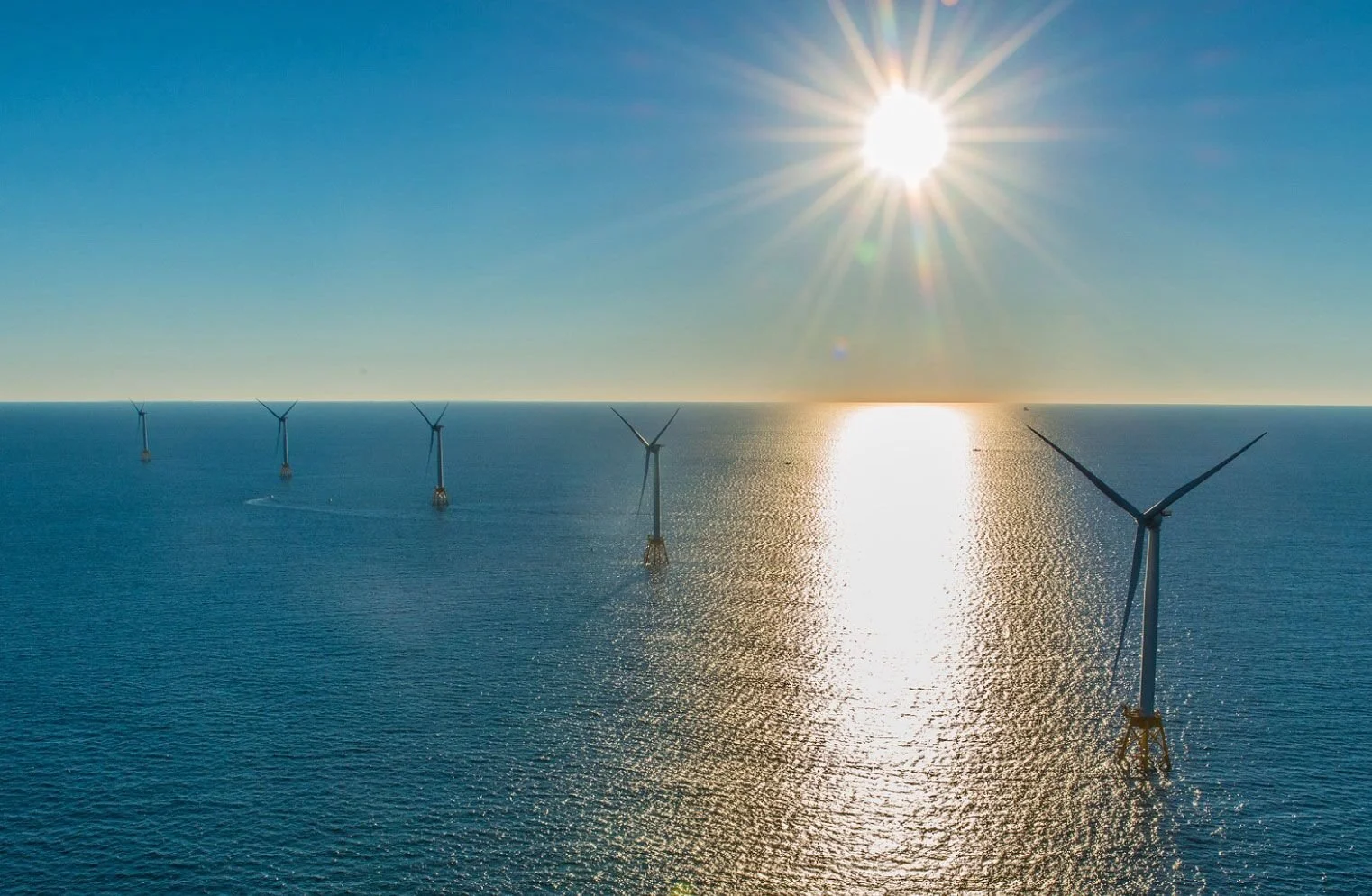Learn from our experts about topics like energy policy, environmental justice, offshore wind, community engagement, workforce training, civic engagement, and criminal justice reform.
Learn with us.

What is renewable energy and why do we need it?
It’s the end of the work day. I hop into my car, put the key in the ignition, and make my way home. When I get there, I flip on the lights to the living room, the dining room, and the kitchen. Dinner tonight is salt and pepper tofu with rice, so I plug in the air fryer and the rice cooker. I turn on my bluetooth speaker and listen to music as I wait for dinner to be ready. The appliances beep and sing to tell me that they’re done. I plate everything and plop down on the couch in front of the TV to watch the newest episode of Abbott Elementary or Bob’s Burgers.
At every step of the way, I am using electricity. What is electricity? And where does it come from?

What is decarbonization?
Earth has many cycles. Since matter cannot be created or destroyed in a closed system (this is true for the most part without getting into quantum physics!), what we have on planet Earth is what we got. So how do we take care of the resources we have? This first article in the series will talk about the carbon cycle.

2025 Community Input Report
In 2024, Roots 2Empower spoke with 220 community members over a series of seven meetings to prepare them to engage in the development of the 2025 Climate Action Strategy and understand what support they would need to do so. During these meetings, we educated participants about the causes of climate change from an environmental justice lens, provided an overview of climate action the state is taking, and gathered feedback which we published in this report.

Careers in the Clean Energy Transition
The transition to a regenerative economy will provide an abundance of well-paying jobs. This article provides an overview of jobs in six key sectors.

Fostering Environmental Justice
This booklet was created to foster conversations about environmental justice in Rhode Island in advance of the state’s development of the 2025 Climate Action Strategy. Although this history is incomplete, our goal was to provide baseline information about the extractive economy, how it started, and the ways it fuels the relationship crisis between ourselves, each other, and the Earth. This booklet is available in English, Spanish, and Portuguese.

Our Comment on Pawtucket’s Proposal to Convert Morley Field
Thank you for the opportunity to comment on the vital matter of preserving the only green space in the majority Black and brown Woodland Neighborhood of Pawtucket. Roots 2Empower is a Pawtucket-based nonprofit that works to build community power and resilience through mutual aid, community gardening, dialogues, visioning sessions, and entrepreneurial training. Despite the work that we do to enable civic engagement for justice-impacted, low-income, and marginalized residents of Rhode Island’s urban core, our impact is limited without a transparent and democratic process. Regrettably, that has been the case with the unnecessary closure of Morley Field and the application to convert part of the field into a parking lot.

Powering Energy Justice: Building a Diverse, Equitable, and Inclusive Offshore Wind Industry in Rhode Island
Roots2Empower was recently awarded a grant from SouthCoast Community Foundation for their project "Powering Energy Justice: Building a Diverse, Equitable, and Inclusive Offshore Wind Industry.” A social justice 501c(3) nonprofit based in Rhode Island’s tri-cities Pawtucket, Providence, and Central Falls, Roots2Empower’s mission is to enable civic engagement and break the cycle of poverty, incarceration, and recidivism for low-income and marginalized communities. This grant will support Roots2Empower’s work educating and engaging community members on the clean energy transition, the essential role of offshore wind energy, and how they can get involved, provide input, and access family-sustaining careers. Their first community meeting for Pawtucket residents will be from 2-4 pm at the Pawtucket Public Library in the Campbell Auditorium on February 24th.

What is Energy Justice?
Human-caused climate change is driven by burning fossil fuels like coal, oil, and gas for energy. Although we all need energy to live - and all energy comes from the Earth - the benefits and burdens of energy systems have not been distributed fairly. Energy justice seeks to change that by achieving equitable social and economic participation in our energy system while remediating the social, economic, and health burdens on marginalized communities.


Prison to Entrepreneurship Model
Although Rhode Island’s incarceration rates per capita are half the national average, probation rates are much higher. That’s why the Prison Policy Initiative ranked Rhode Island the 10th state for mass punishment, making it the only northeast state on that list.
